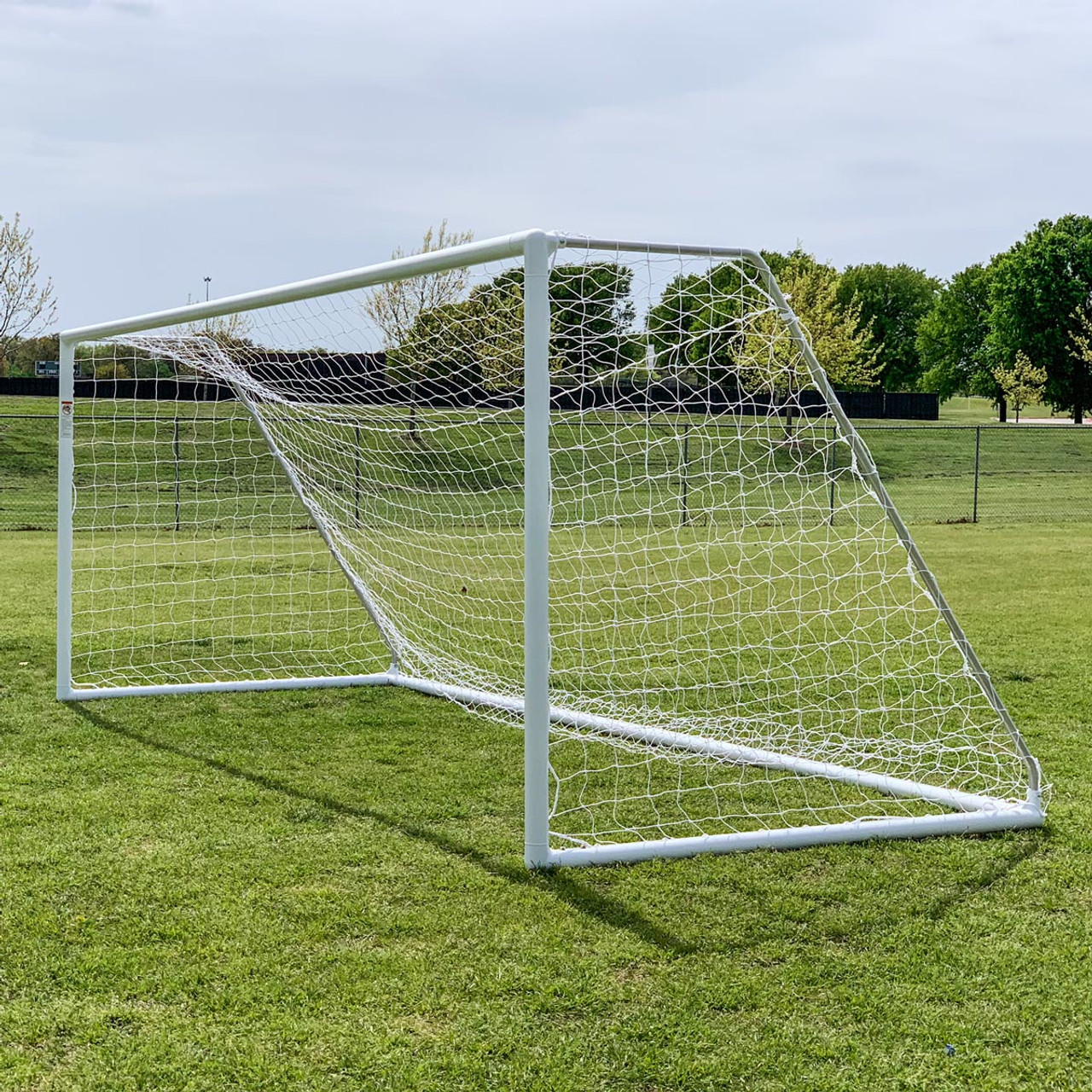Can You Play Football With Asthma? Expert Advice For Athletes.
Yes, individuals with asthma can play football, but it is important to manage and control their symptoms. Asthma management should be a priority for anyone engaging in physical activities, including football.
Asthma symptoms can be triggered by exercise, but with proper prevention measures, medication, and communication with coaches and teammates, people with asthma can safely play football and enjoy the benefits of sports. Football is a popular sport that requires endurance, speed, and agility.
It is a great way to stay physically active and socialize with others. However, people with asthma may worry about their ability to participate in sports due to their condition. Asthma is a respiratory condition that can cause difficulty in breathing, wheezing, and coughing. Exercise-induced asthma (EIA) is a common type of asthma that can occur during physical activities such as football. Despite these challenges, individuals with asthma can play football by taking precautionary measures to manage their symptoms. In this article, we will discuss how asthma affects football players and provide tips on how to manage and control symptoms while playing the game.

Is it okay to play football with asthma?
Playing football with asthma is generally safe and feasible with proper management. It’s crucial to consult your doctor first, to ensure your asthma is well-controlled. Develop an asthma action plan that includes medication instructions and steps to take during flare-ups.
Prioritize a thorough warm-up before the game to prepare your lungs for exertion. Always have your rescue inhaler on hand, and inform your coaches and teammates about your condition, so they’re aware and can assist if needed.
Choose playing environments wisely, favoring indoor or well-maintained outdoor fields to reduce triggers. Stay hydrated to support your lung function and mitigate exercise-induced bronchoconstriction.
Remember, professional athletes with asthma have excelled in football, demonstrating that careful planning and adherence to medical advice allow you to enjoy the game without compromising your health.
Understanding Asthma And Football
Playing football can be a demanding physical activity that requires high stamina and excellent performance. However, for athletes with asthma, it can be daunting to determine if they can withstand the physical demands of this sport.
The Relationship Between Asthma And Physical Activity
Asthma is a chronic respiratory disease that affects millions of people worldwide. It causes inflammation and narrowing of the airways, making it challenging to breathe. For athletes with asthma, this difficulty in breathing can be detrimental to their performance in high-intensity sports, such as football.
However, with proper management, asthma does not have to be a hindrance to football players. Here are some guidelines to follow:
- Athletes with asthma should undergo a proper assessment to determine the severity and triggers of their asthma. With this information, they can work with their doctors to develop individualized asthma action plans.
- Medications can aid in controlling asthma symptoms and improving lung function. Athletes with asthma should take their prescribed medication regularly.
- Warm-up exercises, such as jogging or stretching, can help prepare the body for physical activity and reduce the likelihood of an asthma attack.
- Adhering to a healthy lifestyle, including a balanced diet and regular exercise, can enhance overall health and respond better to asthma management techniques.
Explanation Of How Asthma Can Affect Football Players
Asthma can affect football players in various ways, including:
- During strenuous physical activity, the breathing rate increases, causing asthmatic athletes to experience shortness of breath and tightness in the chest.
- Environmental factors can trigger asthma attacks, such as high humidity, cold air, air pollution, and pollen.
- Uncontrolled asthma symptoms can cause fatigue, lack of focus, and decreased physical activity, which can negatively affect a player’s performance.
However, with adequate asthma management, football players can continue to play to the best of their ability. It is crucial to recognize and manage asthma symptoms properly to avoid any impact on their performance.
Football players with asthma can continue to participate in the sport with appropriate asthma management. Working with medical professionals and adhering to an asthma action plan can decrease asthma symptoms, improve respiratory function, and enhance overall well-being.
Tips For Managing Asthma While Playing Football
Playing football is a great way to stay active and healthy. However, for those with asthma, it can also be challenging. Asthma can cause shortness of breath, wheezing, coughing, and other symptoms that can make it difficult to participate in sports like football.
But don’t let asthma hold you back! With proper medical management and pre-game preparation, you can still enjoy playing football. We’ll cover some expert advice for athletes with asthma, specifically tips for managing asthma while playing football.
Medical Management Options For Asthma
Managing asthma is crucial to playing football safely. Here are some medical management options that can help you control your asthma symptoms:
- Inhalers: Inhalers are the most common treatment for asthma and are often prescribed to be used before exercising. They work by opening up your airways to help you breathe more easily.
- Allergy medication: If your asthma is triggered by allergies, taking allergy medication can help alleviate symptoms before playing football.
- Long-term control medication: If you have persistent asthma, your doctor may prescribe long-term control medication, such as leukotriene modifiers or inhaled corticosteroids. These medications help reduce airway inflammation, making it easier to breathe.
Pre-Game Preparation To Minimize Asthma Symptoms
In addition to medical management options, there are several pre-game preparations that can help minimize your asthma symptoms. Here are some tips to follow:
- Warm-up: Warming up before playing football can help reduce the severity of your asthma symptoms. Try doing some light exercises like jogging or stretching before starting the game.
- Control triggers: Identify your asthma triggers and try to avoid them as much as possible. Common triggers for asthma include pollen, dust, and cold air.
- Keep your inhaler close: Always keep your inhaler close by while playing football so that you can use it if needed.
- Talk to your coach: Talk to your coach about your asthma so that they can help you modify your training and games to better suit your condition.
Remember, asthma should never hold you back from playing football. By following these expert tips for managing asthma while playing football, you can stay active and have fun on the field!
Strategies For Football Players With Asthma
Football is a physically demanding sport, and for athletes with asthma, managing their condition while playing can be challenging. However, with the right strategies and approach, football players with asthma can perform at their best. We will discuss some expert advice and effective strategies for managing asthma while playing football.
Importance Of Physical Fitness For Asthma Management:
Regular physical activity is crucial for everyone, especially for asthma patients. It can help improve lung function and overall health. As a football player with asthma, it is essential to focus on physical fitness and maintain a healthy lifestyle. Here are some tips to help you manage your asthma while staying fit:
- Follow a regular exercise routine that includes warm-up and cool-down sessions.
- Consult your doctor and make sure you have a written asthma action plan.
- Keep your inhaler with you at all times and use it before and after exercise if required.
- Take regular breaks during training and matches if necessary.
- Avoid playing in extreme weather conditions.
- Stay hydrated by drinking plenty of water before, during, and after exercise.
Psychological Aspects Of Managing Asthma While Playing Football:
Many football players with asthma experience anxiety and fear of having an asthma attack while playing. It is crucial to manage these psychological aspects and stay relaxed while playing. Here are some tips to help you manage your psychological well-being:
- Talk to your coach, teammates, and family members about your condition and seek their support.
- Practice breathing techniques like diaphragmatic breathing and pursed lip breathing to help you stay relaxed and calm.
- Focus on positive self-talk and visualize yourself performing at your best.
- Do not let your asthma define you or limit your potential as a football player.
- Seek professional help if you experience severe anxiety or depression.
Having asthma does not mean you cannot play football. By following these strategies and expert advice, you can manage your condition effectively and perform at your best on the field. Remember, with the right mindset and approach, anything is possible.
Expert Advice For Athletes With Asthma
Football is an energetic sport and requires extensive physical activity which can be challenging for people with asthma. However, athletes with asthma can still enjoy the sport if they manage their condition well. We explore the expert advice of medical professionals and knowledgeable athletes with asthma to help football players stay healthy and safe on the field.
Advice From Medical Professionals For Football Players With Asthma
The guidance provided by medical professionals can assist football players with asthma in managing their condition and avoiding complications. Here are the tips from medical professionals:
- Visit a doctor or asthma specialist before starting to play football.
- Take medicine regularly as prescribed by the doctor to keep the asthma symptoms under control.
- Always keep inhalers or nebulizers with you when playing football.
- Do a proper warm-up before starting the game.
- Avoid playing in polluted environments since it can trigger asthma symptoms.
Personal Experience Of Athletes With Asthma And How They Manage Their Condition While Playing Football
It can be valuable to learn from other athletes’ experiences, and it’s not different for football players with asthma. Here are the tips from athletes with asthma:
- Adhere to the medication regimen prescribed by the doctor. The medicine will help manage asthma symptoms during the training and games.
- Maintain a healthy and active lifestyle. It will help to strengthen the body, providing greater resilience to asthma attacks.
- Keep an inhaler on hand, especially during the training and games.
- Listen to the body and stop playing immediately if experiencing any symptoms.
Football is a rewarding sport that can be enjoyed by people with asthma if they take the proper precautions and follow the expert advice provided by medical professionals and knowledgeable athletes. With consistent medication, warm-up, and awareness of one’s body, people with asthma can continue to participate in football and excel on the field while staying safe, healthy, and motivated.
Frequently Asked Questions For Can You Play Football With Asthma
Can People With Asthma Play Football?
Yes, people with asthma can play football, but they should take precautions and be properly managed.
How Does Exercise Affect Asthma?
Exercise can trigger asthma symptoms, but with proper management, exercise can improve lung function and overall health.
What Precautions Should Asthmatics Take While Playing Football?
Asthmatics should take their medication before playing, warm up properly, and have a quick-relief inhaler on hand during games.
Conclusion
As we conclude, it’s worth noting that having asthma shouldn’t hinder anyone from enjoying playing football or other sports. While asthma can be a concern for many, there are ways to manage its symptoms, such as taking prescribed medication, staying hydrated, and ensuring you condition your lungs through regular exercise.
Remember, it is essential to consult your doctor before engaging in intense physical activity, especially if you have asthma. By taking the necessary precautions, you can still achieve your football goals and stay healthy. Being open and honest with your team, coach, and medical team is essential for any player so that they can support you in the best possible way.
So, if you’ve been wondering whether you can still play football with asthma, the answer is yes. With the right approach and management, people with asthma can join their peers in fun, physical activities.



